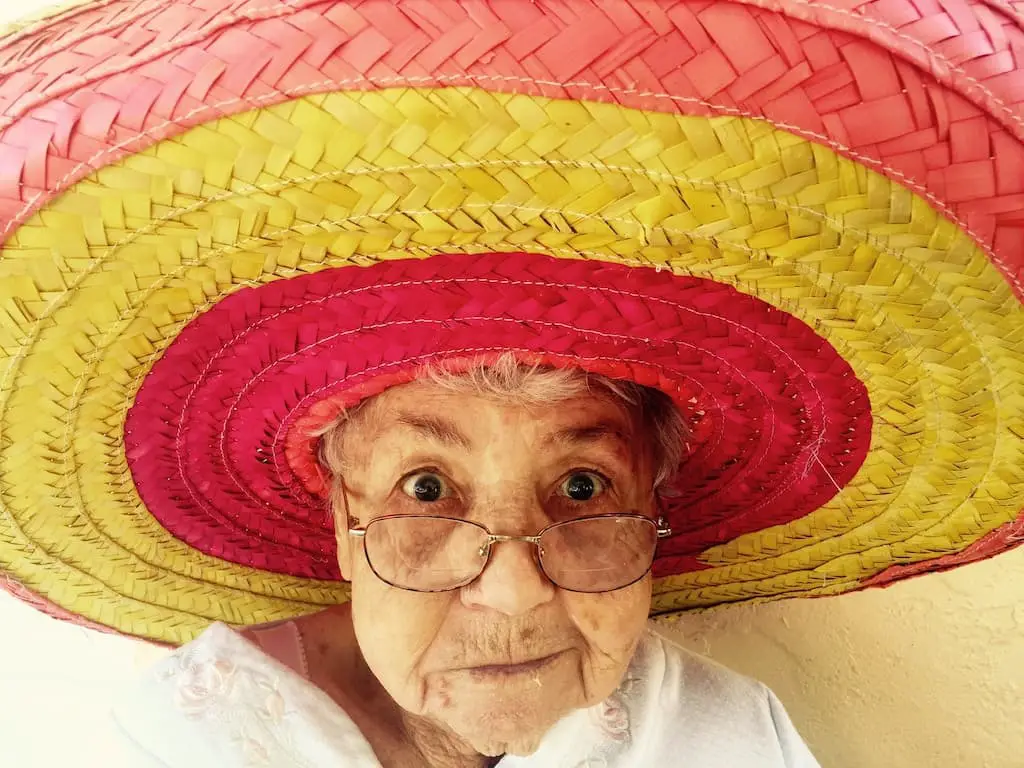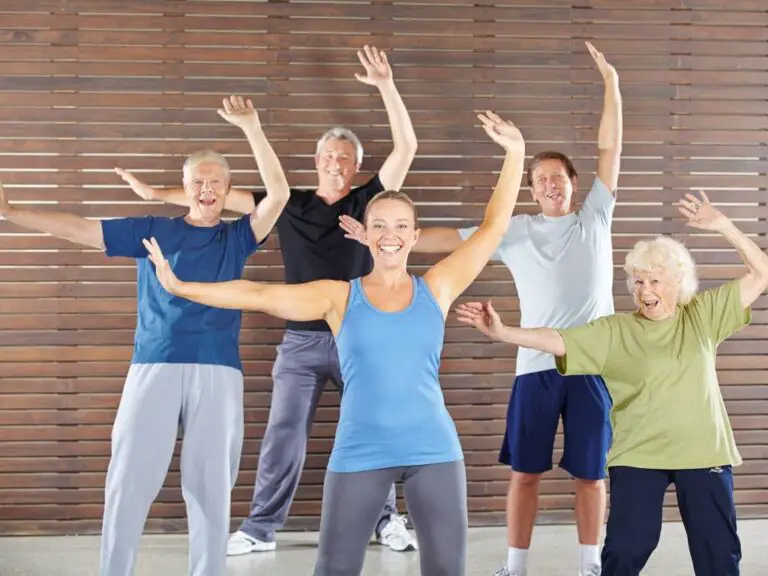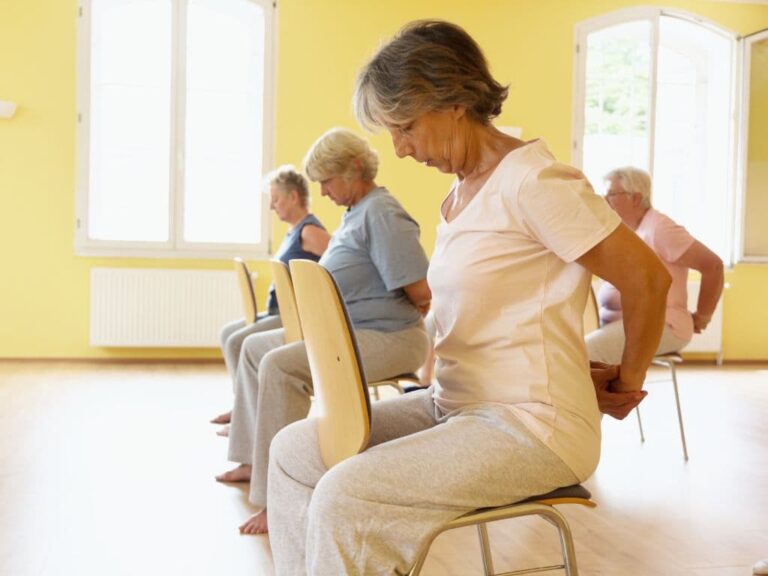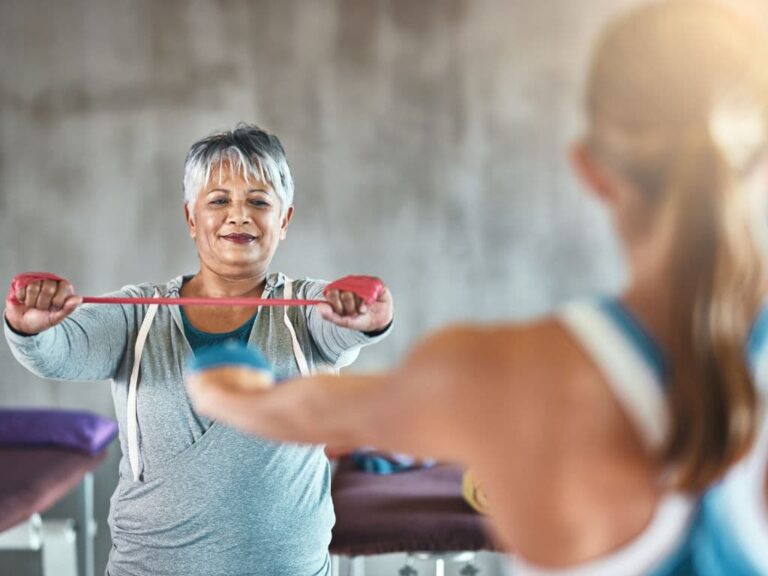Can Vision Improve With Age?
As we age, various aspects of our health tend to change, and one of the most noticeable changes is in our vision.
While aging is often associated with a decline in vision, certain factors can lead to improved eyesight. Regular eye check-ups, a healthy diet rich in nutrients beneficial for eye health, regular exercise, avoiding smoking and excessive alcohol consumption, wearing sunglasses for UV protection, and managing chronic conditions can all contribute to maintaining or even improving vision as one ages.
In this article, we will explore how vision changes with age, the factors that can contribute to better vision and some practical and doable tips for maintaining good eye health.

How Does Vision Change as We Age?
One of the first signs of aging eyes is difficulty in reading fine print, a condition known as presbyopia. Typically, this becomes noticeable after the age of 40 and makes activities like reading or sewing more challenging.
Another change that many older adults experience is difficulty seeing clearly in low-light conditions or at night. Research indicates that as individuals age, the rod cells in the eye, which are responsible for low-light vision, tend to experience a decline in function. This can lead to longer adjustments and focusing times in the dark, making activities such as nighttime driving more challenging.
Dry eyes are a common issue among older adults as well, as they tend to produce fewer tears. This condition can be particularly prevalent in women who have undergone menopause.
Distinguishing objects from backgrounds of similar colors can also become more difficult in old age due to a loss of contrast sensitivity. This can affect everyday tasks, such as identifying objects like milk in a white cup.
Flashes of light in your vision can also be associated with aging and these occur when the vitreous rubs or pulls on the retina. Sensitivity to glare is another concern, especially for adults with specific eye conditions.
It’s a common misconception that vision loss is an inevitable part of aging, with two out of three Americans believing this to be true. While aging can bring changes to our eyes, eyesight loss is not the norm and it doesn’t mean that vision loss is an inherent consequence of getting old. However, senior adults can be prone to developing glaucoma, a condition that can lead to blindness, if left untreated. This disease damages the optic nerve, and its symptoms often go unnoticed for many years.
What Are the Factors That Can Improve Vision with Age?
Contrary to popular belief, there are several ways in which you can actively work to improve your vision as you age. Here’s what you must do:
Regular Eye Check-ups
Regular eye check-ups are crucial for detecting and addressing vision issues early on. Following EyeFACTS recommendations, going through an annual eye exam is necessary for individuals over 60.
Healthy Diet
Nutrition plays a significant role in eye health. Incorporate the following eye-friendly foods into your diet:
- Leafy Greens: Spinach, kale, and collard greens are rich in lutein and zeaxanthin, which can help protect your eyes from harmful light.
- Omega-3 Fatty Acids: Fish like salmon, trout, and mackerel are high in omega-3s, which can reduce the risk of macular degeneration.
- Vitamin C and E: Citrus fruits, nuts, and seeds provide essential antioxidants for eye health.
Regular Exercise
Physical activity improves blood circulation, which is essential for healthy eyes. Exercise also helps manage conditions like diabetes and high blood pressure, which can negatively affect vision.
Avoiding Smoking and Alcohol
Smoking and excessive alcohol consumption are known risk factors for eye diseases like macular degeneration and cataracts. Quitting smoking and moderating alcohol intake can improve eye health.
Wearing Sunglasses
Over time, prolonged exposure to sunlight can harm your eyes due to the damaging nature of UV rays. Wearing sunglasses with UV protection can help safeguard your eyes from these harmful rays.
Using Corrective Lenses or Undergoing Surgery
If you have refractive errors like myopia (nearsightedness) or hyperopia (farsightedness), using corrective lenses or undergoing procedures like LASIK can significantly improve your vision.
Managing Chronic Conditions like Diabetes or High Blood Pressure
If you have underlying health conditions like diabetes or high blood pressure, it’s crucial to manage them effectively. Uncontrolled diabetes can lead to diabetic retinopathy, while high blood pressure can increase the risk of glaucoma.
What Are the Signs of Improving Vision?
Improving your vision may not always be apparent, but there are signs to watch out for:
- Clearer vision: You can see objects more sharply and with less blurriness.
- Improved night vision: If you find it easier to see in low-light conditions, your vision may be improving.
- Less reliance on glasses or contacts: If your prescription decreases or you need your glasses less frequently, it’s a positive sign.
Common Age-Related Eye Problems and Diseases
Here are five of the most prevalent age-related eye problems. Awareness of these diseases is an essential step in aiming for good eye health:
- Presbyopia: The inability to focus on close objects. This age-related condition makes it difficult to focus on close objects, typically becoming noticeable around 40. Wearing reading glasses or multifocal lenses is one of the most common solutions.
- Cataracts: The clouding of the eye’s lens is another common age-related issue, leading to blurry vision. Surgery to replace the cloudy lens with an artificial one is often recommended.
- Glaucoma: Increased intraocular pressure can damage the optic nerve, causing vision loss. The early identification and prompt treatment of glaucoma are vital for effectively managing this condition.
- Macular Degeneration: This condition affects the macula, causing central vision loss. Having regular eye exams and embracing a healthy lifestyle can help reduce the risk.
- Diabetic Retinopathy: People with diabetes are at risk of developing this condition, which damages blood vessels in the retina. This condition requires strict blood sugar control and regular eye check-ups.
How to Maintain Good Eye Health as You Age?
To maintain good eye health as you age, consider the following tips:
- Eat a well-rounded diet abundant in nutrients that promote healthy eyes.
- Exercise regularly to improve blood circulation.
- Safeguard your eyes against the damaging effects of UV rays by wearing sunglasses.
- Quit smoking and limit alcohol intake.
- Manage chronic conditions like diabetes and high blood pressure.
- Get regular eye check-ups.
When Should You See an Eye Doctor?
Regular eye check-ups are crucial, but you should also see an eye doctor if you experience any of the following:
- Blurred or distorted vision.
- Frequent eye strain or headaches.
- Changes in color perception.
- Flashing lights or eye floaters
- Pain, redness, or irritation in the eyes.
Conclusion
By following a healthy lifestyle, getting regular eye check-ups, and taking preventive measures, it is possible to improve and maintain good vision as you age. You can enjoy a clear and vibrant vision well into your golden years. Remember, your eyes are precious, so take good care of them to enjoy a lifetime of visual clarity and comfort.





